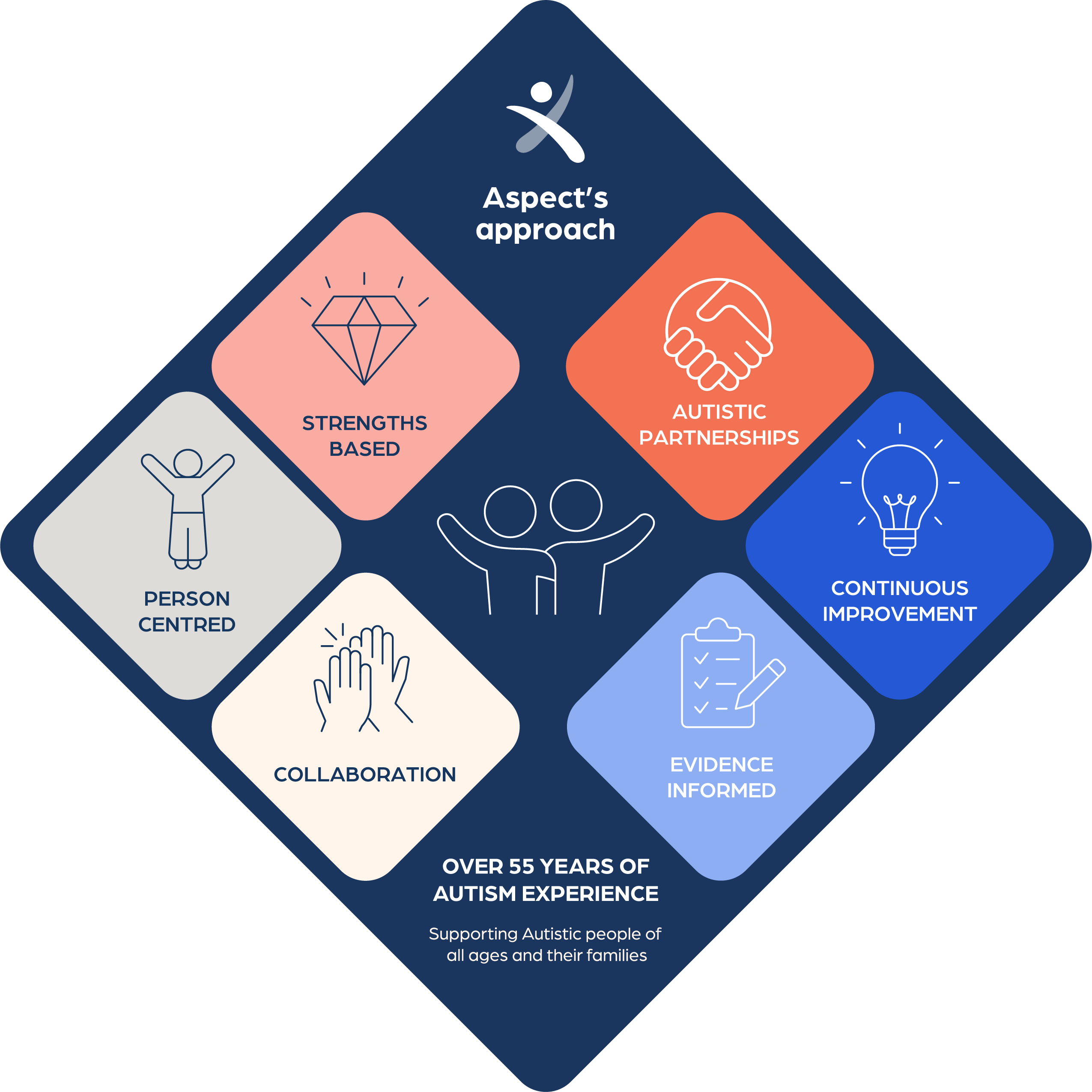Public commentary from high-profile figures has the power to shape attitudes, influence policy and either lift up or harm underrepresented communities.
U.S. Secretary of Health and Human Services Robert F. Kennedy Jr. has sparked widespread controversy for promoting misinformation and scientifically discredited claims about autism, as well as for making comments that marginalise Autistic people and their families.
Aspect is deeply troubled by the potential negative impact these comments may have on Autistic people and their families. Read our Response to Robert F. Kennedy Jr.’s comments about autism.
In this blog post, we turn to research to address some of the misinformation about autism that is currently gaining airtime. We also share Aspect’s approach – one grounded in respect, partnership and a commitment to evidence-informed practice. These values guide every aspect of our work with Autistic people and their families.
The vaccine myth
Vaccines do not cause autism. This myth originated with a fraudulent study published in 1998, which has since been thoroughly retracted and discredited. Numerous large-scale studies around the world – including those by the Centers for Disease Control and Prevention (2013), the Institute of Medicine (2011) and a recent study in Autism (2025) – have confirmed there is no link between vaccines and autism. In December 2025, the World Health Organization (WHO) Global Advisory Committee on Vaccine Safety (GACVS) released this statement on vaccines and autism.
Read more on the Aspect Autistic Pregnancy and Parenthood Hub.
Claims of an autism “epidemic”
While autism diagnoses have increased in recent decades, this has largely been attributed to greater awareness, broader diagnostic criteria and improved access to assessments. There has also been a notable rise in diagnoses among historically under-recognised groups, including women and girls, as well as older people aged 60 and over. Based on prevalence studies conducted between 2019 and 2023, Aspect estimates that at least 1 in 40 people in Australia is on the autism spectrum. Read more.
Autism is not a disease
As indicated in this Nature Genetics publication (2014), autism is a neurodevelopmental condition with strong genetic foundations. It is a natural variation of human neurodiversity, not a disease to be "cured" or “eradicated”.
**Updated January 2026**
Paracetamol use during pregnancy
Paracetamol is also called acetaminophen or Tylenol. It is used to treat mild or moderate pain and lower fever. It is safe to take during pregnancy as directed on the label or by your health practitioner. This 2026 systematic review and meta-analysis found no strong evidence that paracetamol causes autism. Large, well-designed studies looking at whole populations have not found a causal link. Some smaller studies have reported weak associations between paracetamol use and autism, but these findings do not prove cause and effect.
Read more on the Aspect Autistic Pregnancy and Parenthood Hub.
Every Autistic person deserves the right support to thrive

At Aspect, supporting Autistic people to thrive begins with genuine partnership. We embed Autistic perspectives across every part of our organisation – from service delivery to research and governance – ensuring that lived experience is at the heart of what we do. When supporting individuals, we prioritise their views and preferences while working with their support networks to gain a well-rounded understanding of their needs, strengths and goals.
We tailor our supports and services to reflect each individual's unique needs and preferences, guided by the latest research and evidence and shaped by ongoing input from Autistic individuals and their support networks.
Learn more about Aspect’s approach.
A call for respect, accuracy and inclusion
Public conversations about autism must be grounded in respect and informed by evidence, not fuelled by fear, misinformation or outdated ideas. At Aspect, we stand with the Autistic community in challenging harmful narratives and promoting understanding, inclusion and dignity. By focusing on lived experience, truly listening to Autistic people and using research to guide our actions, we can create a society where every Autistic person is valued and supported to thrive.



